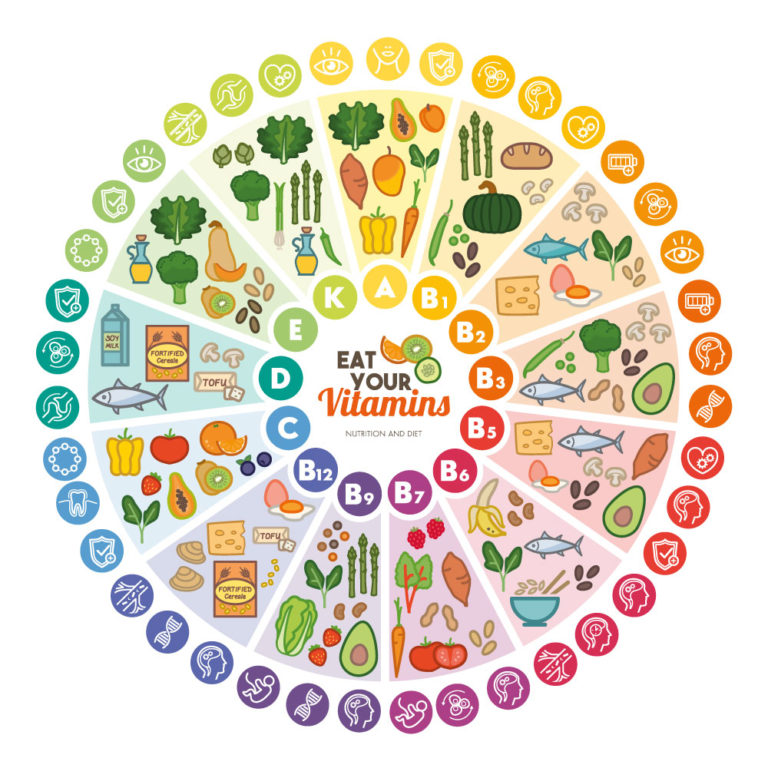A vitamin is an organic compound that cannot be made by the human body, but is a required nutrient vital for its various functions. Vitamins are needed in only limited amounts and thus are traditionally derived from our diet. And, yet, nearly half of the U.S. population takes multivitamin supplements—even in times of financial downturn. In 2010 the U.S. supplements industry reached $28 billion in annual sales. And, although no clear scientific need has been defined for vitamin supplementation, the most common reason for taking vitamins is a desire to “improve” or “maintain” overall health, according to a poll conducted by the National Institutes of Health in 2013.
Are vitamin supplements really beneficial?
The B vitamin folate is known to prevent anemia and, similarly, the synthetic form of folate, known as folic acid (FA), has proven beneficial in preventing birth defects, specifically neural tube defects. So beneficial, in fact, that flour, bread and grain products in the United States have been fortified by FDA mandate since 1996. But what if you are not a woman of child-bearing age? Is additional folate good for you? Several studies have suggested an increased risk of cancer metastases with folate supplementation. Could we now see unintended effects of FA fortification that did not previously present themselves? (See The Folic Acid Dilemma.)
Determining whether or not a person should supplement with folate is part of the science of nutrigenetics—the focus of the Nutrition Research Institute—and what is known as “precision nutrition.” Each person’s vitamin needs vary based on each one’s genome and metabolism and, therefore, over-supplementation is possible.
Another commonly taken supplement is vitamin A. It is important for vision, bone growth, the immune system, reproduction and cell functioning. It is found in animal sources such as, eggs, meat and dairy products. But vitamin A has a window of benefit: Too much or too little is detrimental. High doses of vitamin A may increase risk for lung cancer, while not receiving adequate amounts of vitamin A can result in liver disorders, immunity impairment and common vision problems.
Like folate, Vitamin A is also available in synthetic form. But, where the synthetic FA has been found to have significant benefit in preventing certain birth defects, the same cannot be said across the board. It has been found that food sources of carotenoids such as beta-carotene (a precursor of vitamin A) may reduce the risk of cancer. However, beta-carotene supplements do not reduce cancer risk nor have they been shown to increase it.
Over-supplementation of some nutrients is not possible when receiving them from natural sources; Vitamin E is an example. Yet, taking too much vitamin E from supplements can result in brain bleeding, birth defects and increased risk of prostate cancer. Vitamin D contains similar characteristics. It reduces cancer risk, prevents infections, diabetes and allergies, and reduces inflammation. But too much vitamin D can cause hypercalcemia, disorientation, kidney stones and nausea.
The answer, then, to the question of whether or not to supplement seems to be “maybe.” While dietary supplements may be advantageous in specific situations, most of us should obtain our vitamins from food. Eating natural sources of nutrients not only provides adequate intake, but unprocessed foods also contain essential minerals, dietary fiber and other naturally occurring substances that have positive health effects.
So, unless your doctor has prescribed vitamin supplementation, a best bet is to get your vitamin intake from natural foods, which has been recommended in the 2010 USDA and Department of Health and Human Services 2010 Dietary Guidelines for Americans. To ensure that you derive the most benefit from your diet, include plenty of fresh fruits and vegetables and if possible eat them raw; if not, steam or stir fry them. Do not store your fruits and vegetables for long periods as they begin to lose their nutrient value over time. Dried beans and peas are also good choices; even when they are cooked for a long time nutrients are retained.
Helpful lists of foods and their nutrient contents can be found at World’s Healthiest Foods.
This article was first delivered as a public lecture in the NRI’s Appetite for Life series.

